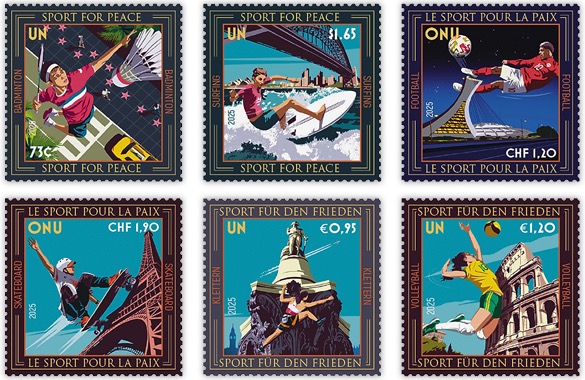Spanish athlete Iván Fernández Anaya refused to take advantage when his rival stopped short of the finishing line in a cross-country race.
On December 2, 2012, Iván Fernández Anaya was competing in a cross-country race in Burlada, Navarre. He was running second, some distance behind race leader Abel Mutai – bronze medalist in the 3,000-metre steeplechase at the London Olympics.
As they entered the finishing straight, he saw the Kenyan runner – the certain winner of the race – mistakenly pull up about 10 meters before the finish, thinking he had already crossed the line.
Fernández Anaya quickly caught up with him, but instead of exploiting Mutai’s mistake to speed past and claim an unlikely victory, he stayed behind and, using gestures, guided the Kenyan to the line and let him cross first.
“He was the rightful winner. He created a gap that I couldn’t have closed”
“I didn’t deserve to win it,” said 24-year-old Fernández Anaya. “I did what I had to do. He was the rightful winner. He created a gap that I couldn’t have closed if he hadn’t made a mistake. As soon as I saw he was stopping, I knew I wasn’t going to pass him.”
Fernández Anaya was coached in Vitoria by former Spanish distance runner Martín Fiz in the same place, the Prado Park, where he clocked up kilometres and kilometres of training to become European marathon champion in 1994 and world marathon champion in 1995.
“It was a very good gesture of honesty,” says Fiz. “A gesture of the kind that isn’t made any more. Or rather, of the kind that has never been made. A gesture that I myself wouldn’t have made. I certainly would have taken advantage of it to win.”
“I wouldn´t have done it. I would have taken advantage of the mistake to win.”
Fiz says his pupil’s action does him credit in human if not athletic terms. “The gesture has made him a better person but not a better athlete. He has wasted an occasion. Winning always makes you more of an athlete. You have to go out to win.”
Fiz recalls that at the 1997 World Championships in Athens he was followed by his countryman Abel Antón the whole way. In the final meters Antón attacked and easily won the race, having exploited all Fiz’s hard work.
“I knew that was going to happen. […] But competition is like that. It wouldn’t have been logical for Antón to let me win.”
“In the Burlada cross-country race there was hardly anything at stake […] apart from being able to say that you had beaten an Olympic medalist,” says Fernández Anaya. “But even if they had told me that winning would have earned me a place in the Spanish team for the European championships, I wouldn’t have done it either. Of course it would be another thing if there was a world or European medal at stake. Then, I think that, yes, I would have exploited it to win… But I also think that I have earned more of a name having done what I did than if I had won. And that is very important….”
Courtesy: Carlos Arribas / El País Madrid / Fairplay International
Since its foundation by UNESCO and a number of international sports governing bodies in Paris in 1963, the goal of the International Fair Play Committee is the worldwide defence and promotion of fair play. CIFP works with national and international organisations in the field of sports and education, and professional athletes with special emphasis on children, adolescents and those in charge of training them, namely coaches and trainers. CIFP has an important educational role to play in supporting fair play, promoting a better understanding of fair play values and preventing adverse behaviour. In cooperation with various national governing bodies such as ministries, Olympic committees, sports federations, media and sports press associations, CIFP encourages and welcomes the establishment of national fair play committees.
In order to honour and direct attention to acts of fair play performed either within or outside the sports world, the International Fair Play Committee annually awards Fair Play Prizes to personalities who have proved to be excellent ambassadors of fair play.

A set of six postage stamps issued by United Nations in April 2025 commemorate sports for development and peace. Image courtesy United Nations Postal Administration.
